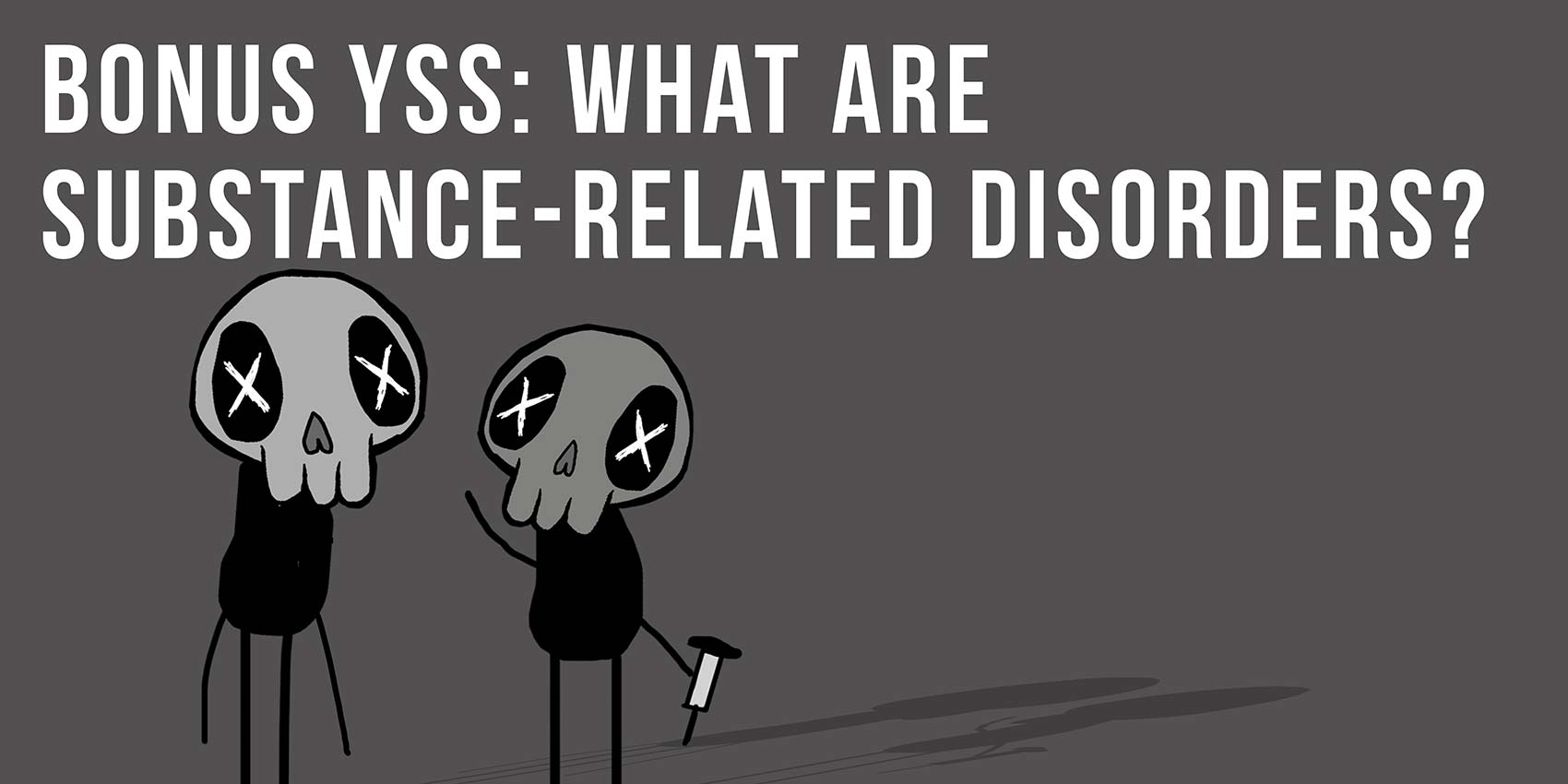27 Mar Bonus YSS: What are the substance-related disorders?

Substance-Related Disorders are various forms of the misuse and/or abuse of alcohol, drugs, medications and/or other harmful substances.
They include:
- Substance Dependence
- Substance Abuse
- Substance Intoxication
- Substance Withdrawal
BRIEF definitions are below.
1. The defining characteristic of substance dependence is that a person continues to use a substance despite SIGNIFICANT behavioral and physical problems caused by the substance and the need for that substance. The top symptoms of dependence are:
– Tolerance (a need for more amounts of the substance in order to experience the same effects)
–Withdrawal (symptoms that occur when substance use has stopped. More on this in number 4 below.)
– Compulsive drug-taking behavior (a constant need to take the substance, they will seek it out at all costs, which is often how many substance dependent people end up on the street)
2. Substance abuse differs from dependence in that a person who has a substance abuse disorder will not experience withdrawal, tolerance or compulsive drug-taking behavior. However, they will have many harmful consequences of substance use present in their lives such as multiple legal problems (like drunk driving convictions), interpersonal problems (like marital fights), job-related problems (like not showing up for work or poor work quality) etc. Substance abuse is much harder for some people to diagnose. For example, many people with Alcohol Abuse Disorder will claim they are not alcoholics since they do not experience withdrawal or compulsive drug-taking behavior. However, they do have SIGNIFICANT problems in their lives related to alcohol use – whether or not they can admit to it.
3. Substance intoxication includes behavioral, emotional and physical changes due to the taking of a substance such as alcohol, cocaine, pot, prescription drugs and other illegal and legal substances. Symptoms include: mood changes, cognitive impairment, poor judgment, decreased overall functioning, and physical impairments. The changes can vary greatly from individual to individual – but perhaps you may have seen someone intoxicated from alcohol who slurs his speech, repeats things, stumbles around or seems out of control. That is substance intoxication – which will eventually go away if the person stops taking the substance – because the body will eventually clear the toxin/poison.
4. Substance withdrawal is a set of physical, cognitive and emotional symptoms that happen when a person does stop taking (or greatly reduces use of) a substance. It is usually (but not always) associated with substance dependence (#1 above) and often causes the person to crave more of the substance. A hang-over is an example of substance withdrawal – although a very mild and low level one. Substance withdrawal can be quite severe with headaches, nausea, vomiting, shaking, chills and an overall inability to function over a prolonged period of time.
The lives of people who have a substance-related disorder can be chaotic, harmful and devastating to both themselves and those around them. To prevent yourself from developing any of the substance-related disorders, please keep developing your sense of self and check out the drugs and alcohol section for all the information you need to know.




Post Question:
Does anyone you know suffer from a substance dependence or abuse disorder?
Answer the post question here
What's being said